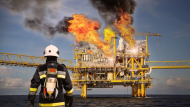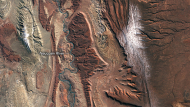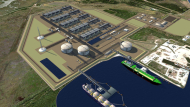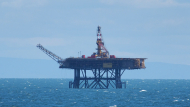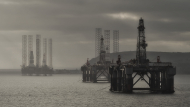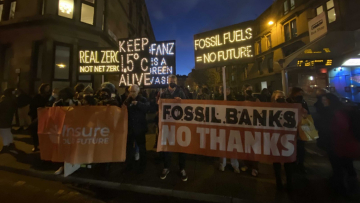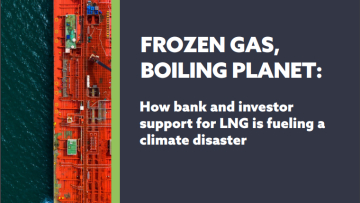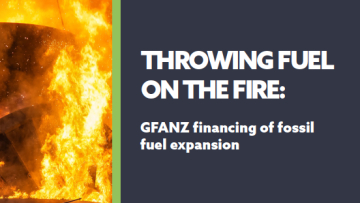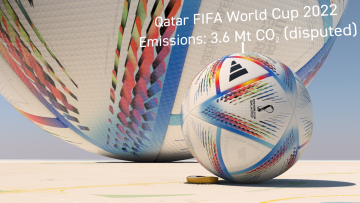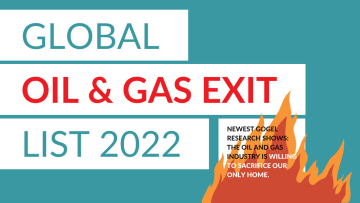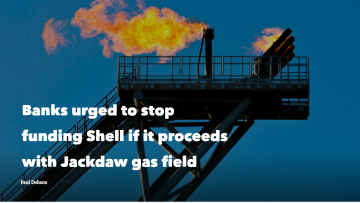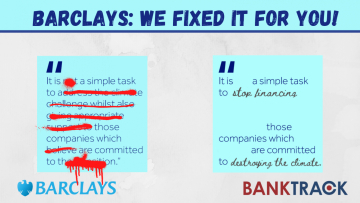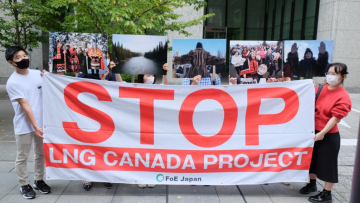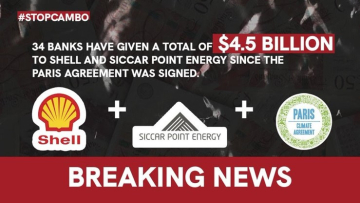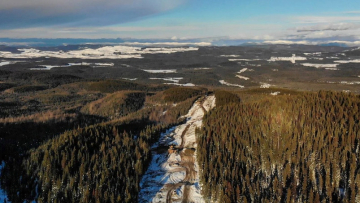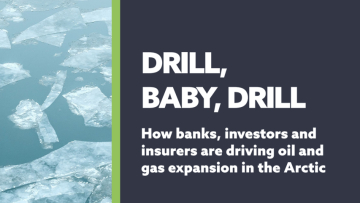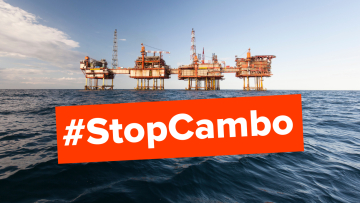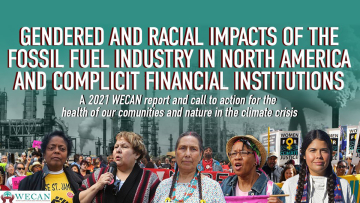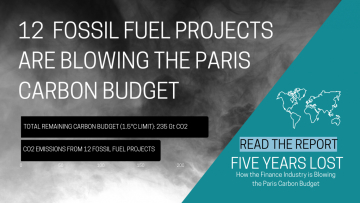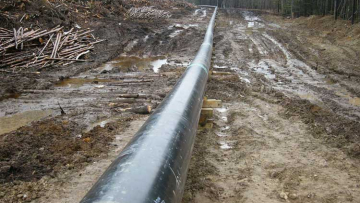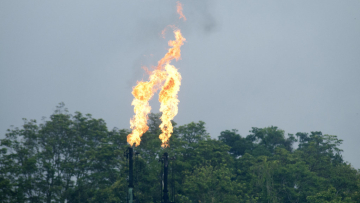
Company – On record
This profile is no longer actively maintained, with the information now possibly out of dateBankTrack
climate@banktrack.org
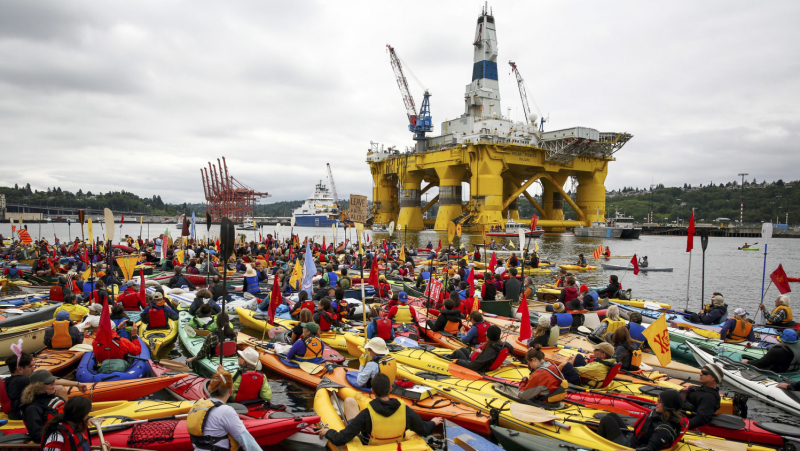
Company – On record
This profile is no longer actively maintained, with the information now possibly out of dateBankTrack
climate@banktrack.org
Why this profile?
Shell is an oil and gas supermajor: Its 2020 income ranked sixth among the world’s oil and gas companies. It is one of the 20 fossil fuel companies responsible for more than one-third of the modern era’s total carbon emissions. Associated with countless controversies and involved in many Dodgy Deals, Shell is actively contributing to climate breakdown.
What must happen
Banks and other financial institutions must demand that their fossil fuel major clients immediately halt all activities that expand fossil fuel infrastructure, and develop and implement credible phase-out plans for their existing fossil-fuel-based activities, on a timescale aligned with Paris Agreement goals. In the absence of such commitments, banks must stop servicing Shell.
| Sectors | Oil and Gas Extraction , LNG Terminal, Pipeline Transportation of Crude Oil, Pipeline Transportation of Natural Gas |
| Headquarters |
|
| Ownership |
listed on Euronext Amsterdam, London Stock Exchange & NYSE
Shell's shareholder structure can be accessed here. |
| Subsidiaries |
|
| Website | http://www.shell.com |
Established in the Netherlands in 1907, Shell is one of the world’s oil and gas 'supermajors'. The British company dropped ‘Royal Dutch’ from its name and moved its head office from The Hague to London in January 2022. According to its 2021 annual report, Shell produced 3.2 million barrels of oil equivalent per day and grew its reserves to 9.36 billion barrels of oil equivalent in 2021. As of 2021, Shell employs approximately 82,000 people and operates in upstream and downstream segments on every continent, across more than 70 countries. Shell is active in liquefying and converting natural gas, extracting bitumen and developing wind power, as well as refining and distribution. Shell's major projects underline its activities and aims.
Impact on human rights and communities
Shell has been involved in dozens of cases of human rights violations, corruption, underpaying staff, bribery and other social harms.
The exportation of carcinogenic fuels to West Africa caught the attention of the Human Environment and Transport Inspectorate (ILT) in 2018. Alongside BP and Chevron, Shell was exporting gasoline with added benzene, which increases its octane number. The benzene concentration was up to 40 times higher than the maximum permitted in Europe. The inspection also found that on-road fuels contained 300 times more sulfur than is permitted in the EU.
Accusations of being complicit in state-sanctioned suppression include the case of the Ogoni Nine. In June 2017, four Nigerian widows filed a lawsuit against Shell in the Netherlands, accusing the company of financing and supporting the 1995 execution of nine men who protested against the Nigerian government and Shell. In May 2019, the court district in the Hague ruled that the case could be heard in the Netherlands.
Public health controversies include a 2012 complaint issued by residents living near the heavily polluting Prigorod-noye oil and gas complex on Sakhalin Island, Russia. As a stakeholder, Shell was accused of not using its influence to prevent the severe damage to community health, food security and local environmental resources caused by Prigorod-noye. In 2007, Shell Brazil and the German company Baden Aniline and Soda Factory (BASF) were accused of causing a spike in cancer rates near the companies' São Paulo pesticide plant. The Brazilian Ministry of Labour and several workers' associations filed the lawsuit and ultimately won: In a settlement worth €240 million, Shell and BASF were ordered to pay the medical fees of all former employees and their families.
Corruption and bribery in Nigeria were the subjects of a case brought against Shell and ENI, concerning their acquisition of the county’s offshore OPL 245 oil block. The Nigerian government uncovered evidence pointing to the companies’ involvement in a corruption scandal concerning USD 1.3 billion, which saw Italian prosecutors demanding jail time for Shell and ENI executives. Two individuals were found guilty of international corruption in 2018, but Shell and ENI were acquitted in 2021.
Impact on climate
Monumental contributions to global greenhouse gas emissions mean that Shell featured prominently in the Climate Accountability Institute’s ‘Carbon Majors 1965-2018’ report in 2020. The report concluded that the top 20 largest oil, natural gas and coal companies pumped 493 billion tonnes of CO2 and methane into the atmosphere from 1965 to 2018, or 35% of global fossil fuel and cement emissions since 1965. Shell was seventh on this list.
The denial of the science of climate change by Shell has helped to obstruct meaningful and timely mitigation action for decades. According to internal reports, Shell scientists warned the board of directors about the threats of climate change in 1988. Shell’s film about anthropogenic climate change, Climate of Concern, followed in 1991. The film advocates for immediate mitigatory action, but Shell continued with business as usual. It eventually entered the sustainable energy market in 1997, but in 2009 Shell halted investment in solar, wind energy and hydrogen energy, citing unsatisfactory profits.
Active lobbying against climate action prompted Shell to join the Global Climate Coalition (GCC). Between 1989 and 2002, the GCC was an international lobbyist group of businesses that opposed greenhouse gas emissions reduction and publicly challenged climate science; it undermined the Kyoto protocol, cast doubt upon scientific consensus and fed journalists false information. Facing mounting pressure, Shell withdrew from the GCC in 1998. Shell then waited until 2015 to cancel its membership with the notorious American Legislative Exchange Council. As of July 2022, Shell was still a member of other groups that oppose robust climate change mitigation policies, such as the American Petroleum Institute and the Western States Petroleum Association.
Thorough greenwashing campaigns have seen Shell predominantly market itself as a renewable energy major, while investing roughly 1% into the renewable energy sector.
Shell now acknowledges anthropogenic climate change and has announced net-zero targets for 2050. Shell’s April 2022 climate target only covers its Scope 1 and 2 emissions however, which concern less than 15% of the greenhouse gases associated with Shell’s energy products. For the remaining 85% of its emissions (Scope 3) Shell set intensity targets, not absolute reduction targets. Shell’s scope 3 emissions intensity targets are a 30% reduction by 2035, then 65% by 2050. This means Shell can increase its emissions, if production is faster than its carbon intensity reductions. Part of Shell’s strategy is to add renewable energy production and tree planting to its portfolio, rather than making essential cuts to its greenhouse gas emissions.
In September 2020, Oil Change International’s ‘Big Oil Reality Check’ 2020 report concluded that Shell’s climate plan is not aligned with the Paris Climate Agreement’s 1.5C target. The report listed 10 Paris-aligned criteria; Shell scored zero.
In May 2021, the District Court of the Hague ruled that Shell is liable for causing dangerous climate change, ordering it to accelerate its climate targets. Two months later, Shell appealed this decision.
Qatar's oil and gas fields Shell signed an agreement with QatarEnergy to increase the extraction of gas from Qatar's North Field, the biggest non-associated gas field in the world and one of the world's largest carbon bombs. Shell is a shareholder in North Field East and North Field South. If all the reserves of Qatar's oil and gas fields are burned this will lead to an additional 50 gigatonnes of CO2 emissions. These emissions will lead to USD 20 trillion in economic damage and 11 million people dying prematurely. These deaths will most likely take place in poor, marginalised and/or Indigenous communities who bear very little responsibility for causing the climate crisis.
Impact on nature and environment
Disastrous oil spills include those caused by Shell Nigeria, which has been responsible for millions of barrels worth of spilled oil since the 1950s. Frequent spills have impacted local people, wildlife and the environment. Most of the leaks in the Niger Delta are due to poor maintenance and inadequate security for pipelines that run uncovered through villages. Shell blames most spills on sabotage by oil thieves, but in 2013 Amnesty International found these claims to be exaggerated and covering up flawed internal investigations. In 2021, a lengthy court case launched in 2008 found Shell guilty of negligence. Shell was ordered to compensate residents suffering from severe oil contamination. This joint case was the work of four Nigerian farmers and Friends of the Earth Netherlands.
In 2010, Shell was deleted from the Dow Jones Sustainability Index due to its continued oil pollution in Nigeria.
Arctic drilling has long turned Shell’s activities into headline news. It has been estimated that the Arctic ocean could yield 90 billion barrels of oil, which is why Shell spent approximately USD 7 billion on its Arctic drilling project between 2003 and 2015.
Weather conditions and challenging landscapes make the Arctic Ocean a difficult area in which to operate; responding to an oil spill would be impossible. During its 2012 Arctic Alaska explorations alone, Shell lost control of a drill rig near Dutch Harbour, before its Kulluk oil rig drifted aground off the coast of Sitkalidak Island. Shell was fined USD 1.1 million soon after for violating Arctic clean air regulations. These failures called into question Shell's ability to operate there; at Shell's 2013 AGM, shareholders urged the company to reconsider venturing into the region. Shell has also faced litigation from native Alaskan and local government entities, as well as local and national conservation organisations.
In 2015, Shell cancelled its Arctic project after finding only modest oil and gas reserves in the Chukchi Sea. In 2020 however, Shell submitted a five-year plan to resume Arctic Alaskan oil and gas exploration, as the Trump administration was considering opening the Arctic National Wildlife Refuge for oil exploration.
Other impacts
Tax evasion impacts upon many regions in which Shell operates. Indian authorities accused Shell India of tax evasion in 2013, alleging that the company had undervalued an internal share transfer by approximately USD 2.8 billion. Furthermore, Shell has exploited Bermuda’s favourable tax laws, paid zero UK corporation tax in 2014 and in 2018 was accused of not paying profit tax in the Netherlands “for years”.
Between 2016 and 2021, 25 commercial banks provided Shell with USD 65.62 billion through lending and bonds issuance underwriting services. Expand the panels below to see which banks were involved.
Applicable norms and standards
Can We Trust Fossil Fuel Companies? Jon Stewart interview with Shell CEO (2022)
Climate of Concern - Royal Dutch Shell (1991)
2022
2022-07-25 00:00:00 | Shell makes the Final Investment Decision on Jackdaw gas field
Following the UK government’s announcement in April that it is intent on new oil and gas drilling, Shell has reached a Final Investment Decision on its Jackdaw gas field project. Production is anticipated to begin in the mid-2020s, when it will account for an estimated 6% of the UK’s gas output.
2022-03-22 00:00:00 | Shell appeals Dutch court ruling on emissions cuts
Shell has filed an appeal against a May 2021 Dutch court ruling, which demands that the company oversees a 45% reduction in its emissions (scopes 1, 2 and 3) by 2030, relative to its 2019 figures. This reduction would be roughly in line with the Paris Climate Agreement’s 1.5C target. The oil major says it is being unfairly targeted.
2022-01-21 00:00:00 | Royal Dutch Shell becomes Shell plc
After announcing the decision in December 2021, Europe’s largest oil and gas company has changed its name from Royal Dutch Shell to Shell plc.
2021
2021-11-15 00:00:00 | Shell to move headquarters from Netherlands to UK
Shell has announced a major overhaul of its legal and tax structure that will see the company walk away from the Netherlands and relocate its tax residence to the UK.
2021-07-20 00:00:00 | Shell to appeal Dutch court ruling on emissions cuts
Shell has confirmed it will appeal a Dutch court ruling of May 2021 that ordered the company to reduce its emissions (scopes 1, 2 and 3) by 45% in 2030, relative to 2019. This emission cut would be roughly in line with the 1.5C Paris Climate goal. The oil major claims the ruling is unfair.
2021-07-14 00:00:00 | Shell pushing for development of Cambo oil field in West Shetlands
The Cambo oil field lies approximately 125km northwest of Scotland’s Shetland Islands. The field is owned by Siccar Point Energy (70%) and Shell (30%). Both companies are pushing for development, which would yield an estimated 800 million barrels of oil. If approved, production will begin in 2025 and run until 2050. Development of the field contradicts the recommendations of both UNEP and the International Energy Agency (IEA) for staying below 1.5C of global heating.
2021-05-26 00:00:00 | Dutch court rules Shell must reduce CO2 emissions by 45% within 10 years
In a landmark case brought by seven organisations and 17,000 co-plaintiffs, the District Court of the Hague has ruled that Shell is liable for causing dangerous climate change. The company has been ordered to accelerate its climate targets to align with Paris Climate goals.

